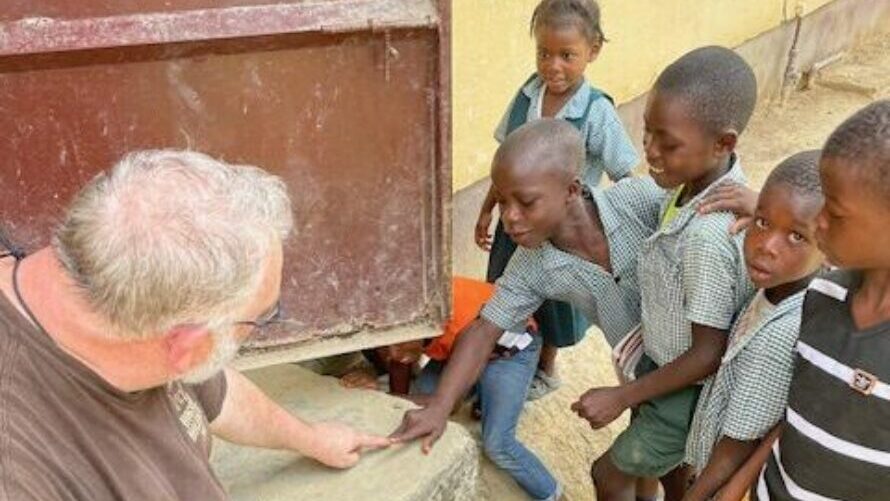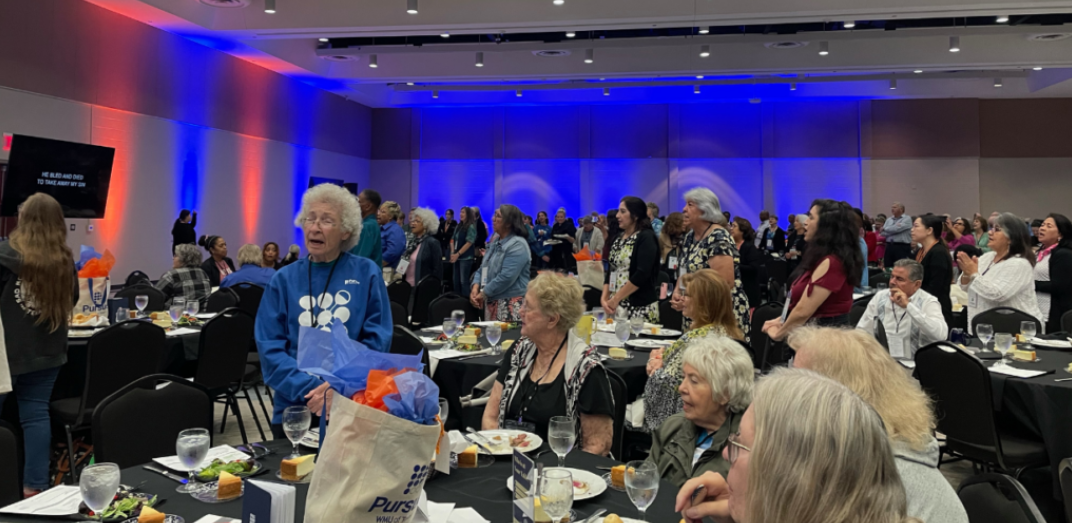The effects of trauma and post-traumatic stress disorder are far-reaching and affect some 20% of adult Americans.
However, many don’t recognize how much a traumatic event has impacted them.
“Trauma affects every part of a person: mind, body and spirit,” according to a recent report from Barna and the American Bible Society, “Trauma in America: Understanding How People Face Hardships and How the Church Offers Hope.”
The report features an in-depth look at the impact of trauma through data and observations from experts on faith and mental health.
Hidden pain
“Many traumatized people … keep their pain hidden. Others would seek help and relief — if they knew where to find it,” said Nicole Martin, ABS vice president of church engagement and executive director of trauma healing.
“ABS believes that churches — who know firsthand the life-changing effects of an encounter with the message of the Bible — have a special opportunity and responsibility to help people heal from trauma.”
Harriet Hill, who spearheaded the development of Bible-based trauma healing materials for ABS, emphasized the importance of the church community.
“Trauma isolates. Healing requires being in community and in relationship with others,” Hill said. “In the end, it is not what people do in a counseling session but what they do outside counseling sessions in ordinary life that matters most.
“We have found that churches large and small that have become competent in trauma healing have grown in their vibrancy, participation, harmony, love of the Bible and ministry to others.”
Many pastors don’t feel equipped to help, according to the report. Pastors who have experienced or witnessed trauma personally were found to be more approachable, with twice as many in their congregations asking for help.
But pastors without that personal experience also should make a conscious effort to point people to available resources.
Barna found that “when pastors talk about trauma and what their churches do, more people come forward for help. As pastors become more familiar with shepherding people with trauma, their churches can become places where more healing happens.”
Forgiveness
Both Bible reading and forgiveness should be included when preaching about this important subject, according to experts.
Chan Hellman, professor of social work at the University of Oklahoma and director of The Hope Research Center, said, “Interacting with the Bible … improves coping levels, as does having familiarity with the Bible before the trauma.”
The opposite also has been shown to be true. Those who stopped reading the Bible after being involved in a traumatic event had much more difficulty healing, Hellman said.
What is preached about forgiveness also can impact healing. Forgiveness is about releasing pain and bitterness and giving up the desire for revenge, not ignoring what happened, said Brianna Leiendecker, U.S. trauma healing coordinator for ABS. “Sometimes people believe that forgiveness and reconciliation are the same or occur at the same time,” she said. “They then expect that trust must immediately be rebuilt between the offender and the victim. But forgiveness of an offender does not deny the seriousness of the offense, and reconciliation is not a requirement in the healing journey.”
Church leaders need to remember trauma’s seriousness to protect both those ministering and healing, said psychologist and author Diane Langberg. “[Church leaders] have to know what they’re doing or they’re going to hurt people. They need the humility to say they don’t know everything and to ask for help. Helping people cope with and heal from trauma can also be a lay ministry. The pastor doesn’t have to do all this alone, though I think they should keep a hand in the process.”
Lingering impact
Healing is difficult, and those who have had negative experiences with a church might have an even more difficult time, said Heather Drew, a counselor and trauma healing training manager at ABS.
“Church hurt is real,” Drew said. “It only takes one painful church experience for someone to be afraid it could happen again. If a traumatized person seeks help in a church community and does not receive safety, understanding, acknowledgement, patience and compassion (among other things), they may become more hurt, and this second wound can be more painful than the first. If a survivor has experienced church hurt, trust must be earned over time.”
Church leaders also need to remember that healing takes time, and safe spaces need to be provided so those affected can talk.
“If church communities can provide these things, they may be more readily considered resources and refuges for survivors,” she said.
Read the full report at traumainamerica.bible.
Resources for churches
- pathwaysprofessional.org
- caringwell.com
- dianelangberg.com/resources
- childrensministry.com/trauma-informed-ministry
- traumahealinginstitute.org
Click here for more information about trauma recovery.








